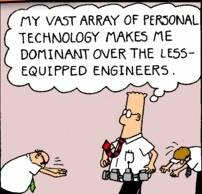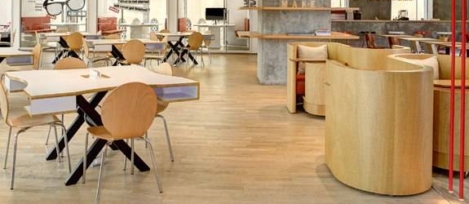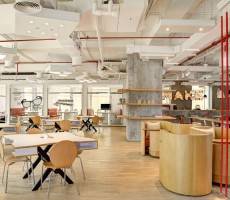August 4, 2016
Connectivity creep is driving more people to switch off their devices 0
 Fifteen million UK internet users have undertaken a ‘digital detox’ in a bid to strike a healthier balance between technology and life beyond the screen, according to a new Ofcom study. The study of around 2,500 people suggests that our reliance on the internet is affecting people’s personal and working lives, leading many to seek time away from the web to spend time with friends and family. Ofcom’s Communications Market Report 2016 finds that one in three adult internet users (34 percent), equivalent to 15 million people in the UK, has sought a period of time offline, with one in ten (11 percent) doing so in the last week alone. Of these digital down-timers, 25 percent spent up to a day internet-free; 20 percent took up to a week off; and 5 percent went web-free for up to a whole month. The most common reasons for taking a time out were to spend more time doing other things (cited by 44 percent) and more time talking to friends and family (38 percent).
Fifteen million UK internet users have undertaken a ‘digital detox’ in a bid to strike a healthier balance between technology and life beyond the screen, according to a new Ofcom study. The study of around 2,500 people suggests that our reliance on the internet is affecting people’s personal and working lives, leading many to seek time away from the web to spend time with friends and family. Ofcom’s Communications Market Report 2016 finds that one in three adult internet users (34 percent), equivalent to 15 million people in the UK, has sought a period of time offline, with one in ten (11 percent) doing so in the last week alone. Of these digital down-timers, 25 percent spent up to a day internet-free; 20 percent took up to a week off; and 5 percent went web-free for up to a whole month. The most common reasons for taking a time out were to spend more time doing other things (cited by 44 percent) and more time talking to friends and family (38 percent).






 Two of the most persistent and related structural problems facing the UK economy are the productivity and digital skills gaps. Earlier this month, the Office for National Statistics reported that there had been a further 1.2 percent fall in productivity. Part of the reason for this is that there is an underlying digital skills gap. According to a report from Barclays, nearly a third (31 percent) of working-age adults in the UK lack even basic digital problem-solving skills which places the country comfortably below the 37 percent average across OECD countries. Despite this, a mere 38 percent of UK employers offer their workers digital skills training, perhaps because on the other side of the coin, the UK ranks highly in what the report calls ‘digital empowerment’, which it defines as ‘the ability and desire to use one’s digital skills to work productively and creatively, and to have the opportunity to continually upgrade them to keep pace with changing technology’.
Two of the most persistent and related structural problems facing the UK economy are the productivity and digital skills gaps. Earlier this month, the Office for National Statistics reported that there had been a further 1.2 percent fall in productivity. Part of the reason for this is that there is an underlying digital skills gap. According to a report from Barclays, nearly a third (31 percent) of working-age adults in the UK lack even basic digital problem-solving skills which places the country comfortably below the 37 percent average across OECD countries. Despite this, a mere 38 percent of UK employers offer their workers digital skills training, perhaps because on the other side of the coin, the UK ranks highly in what the report calls ‘digital empowerment’, which it defines as ‘the ability and desire to use one’s digital skills to work productively and creatively, and to have the opportunity to continually upgrade them to keep pace with changing technology’.
 How many people in the workplace genuinely trust their managers and employers? It’s a question that we should ask because the answer unfortunately is not as many as you might think. It’s almost certainly well below what an organisation supposes or expects. For example, a recent
How many people in the workplace genuinely trust their managers and employers? It’s a question that we should ask because the answer unfortunately is not as many as you might think. It’s almost certainly well below what an organisation supposes or expects. For example, a recent 























October 5, 2016
An enlightened approach is needed for the new era of artificial intelligence 0
by Mark Eltringham • Comment, Technology
(more…)